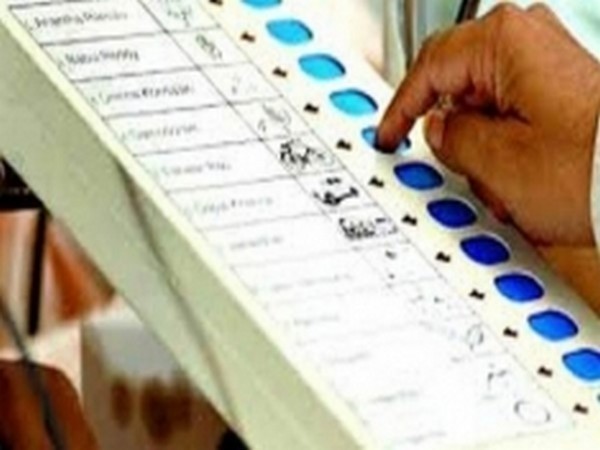Precarious security situation in Central African Republic matter of serious concern: India

India has voiced concern over the “precarious'' security situation in the Central African Republic following the recent presidential election,urging all opposition groups to cease hostilities and find a peaceful solution to the current crisis.
Speaking at a meeting on the situation in the Central African Republic (CAR) in the United Nations Security Council on Thursday, India's Deputy Permanent Representative-Political Coordinator to the UN R Ravindra, said that given the history of political instability and violence, the situation in CAR warrants immediate attention from the international community.
''The precarious security situation in the Central African Republic since the presidential elections held last month is a matter of serious concern,” he said.
He noted with concern the “dangerous escalation” on the ground with the Coalition of Patriots for Change (CPC), armed groups opposed to President Faustin-Archange Touadera, abandoning the Political Agreement for Peace and Reconciliation signed in early 2019 and launching attacks on the capital Bangui and other towns.
Ravindra said while the holding of the second democratic elections on December 27 last year despite persisting challenges was no doubt an important milestone in the CAR, recent developments have the potential to derail the hard-earned progress made since 2019.
“We have seen similar post-electoral situations turning into a major crisis, affecting the larger region. Given the history of political instability and violence, the situation in CAR warrants immediate attention from the international community,” he said.
On Monday, the Central African Republic’s constitutional court validated the results and endorsed the outcome of the December elections in which Touadera had garnered 53 per cent of ballots cast.
India called on all opposition groups, particularly signatories to the Peace Agreement, to cease hostilities immediately and join the CAR authorities in finding a peaceful solution to the current crisis.
“It is imperative for all stakeholders to respect the final verdict by CAR’s Constitutional Court and settle their disputes through a peaceful process,” Ravindra said.
India also welcomed Touadera’s statement where he underscored the importance of reconciliation and that of willingness to work with the opposition.
“The CAR authorities should also avoid taking any action that will exacerbate existing tensions,” the Indian envoy said.
Ravindra reiterated India’s strong condemnation of the “shocking'' and “unacceptable” attack on peacekeepers of the UN Multidimensional Integrated Stabilisation Mission in the Central African Republic (MINUSCA).
“The death of seven MINUSCA peacekeepers since the launch of the coordinated and simultaneous attacks by the coalition of anti-government rebel groups is a tragic reflection of the deteriorating situation on the ground,” Ravindra said.
He added that the perpetrators of these heinous attacks must be held accountable and called on the CAR authorities to take immediate action against the attackers and bring them to justice.
He offered condolences to the bereaved families of peacekeepers from Egypt, Morocco, Gabon, Rwanda and Burundi, who lost their lives during the attacks and stressed that MINUSCA has been playing a critical role in supporting the CAR security forces in repelling the attacks from the opposition groups.
Ravindra voiced India’s support for the ongoing efforts of the African Union and the Economic Community of Central African States (ECCAS), the two guarantors of the 2019 Peace Agreement to defuse the crisis through negotiations.
While the incessant violence has forced nearly 60,000 people to flee the country, reports of CPC recruiting children for its work are condemnable, Ravindra added.
“We remain concerned about the evolving humanitarian crisis due to attacks by the opposition groups. We call on the opposition groups to lift the blockade on towns and allow movement of essential supplies,” he said.
MINUSCA head Mankeur Ndiaye appealed for the deployment of more peacekeepers in response to the upsurge in violence in the wake of December presidential and legislative elections.
“The situation is tense on the ground and the wave of violence that preceded the elections is continuing,” said Ndiaye, who is also the Secretary-General’s Special Representative for the Central African Republic.
He emphasised that seven “Blue Helmets” have been killed in the past four weeks, including, most recently, two on January 18 in an ambush outside Bangassou city. That was the same day on which the Constitutional Court validated the re-election of Touadera, he said, noting that a coalition of armed groups and political allies including former President Francois Bozize are violently challenging the outcome.
The deployment of reinforcements from the United Nations Mission in the Republic of South Sudan (UNMISS) lifted morale among MINUSCA personnel, he said, while cautioning that some armed groups appear to be increasingly aggressive and human rights violations are continuing, testing the Mission’s capacities.
“We need a strategy to manage the mandate,” he said, requesting a substantial increase of both troops and police officers in the framework of inter-mission cooperation.
(This story has not been edited by Devdiscourse staff and is auto-generated from a syndicated feed.)
- READ MORE ON:
- Coalition of Patriots for Change
- Indian
- Central African Republic’s
- Egypt
- Ndiaye
- Ravindra
- UN R Ravindra
- Central African
- United Nations Security Council
- Touadera
- Mankeur Ndiaye
- Rwanda
- MINUSCA
- Bangassou city
- the Republic of South Sudan
- Morocco
- African Union
- Gabon
- Peace Agreement
- Constitutional Court










